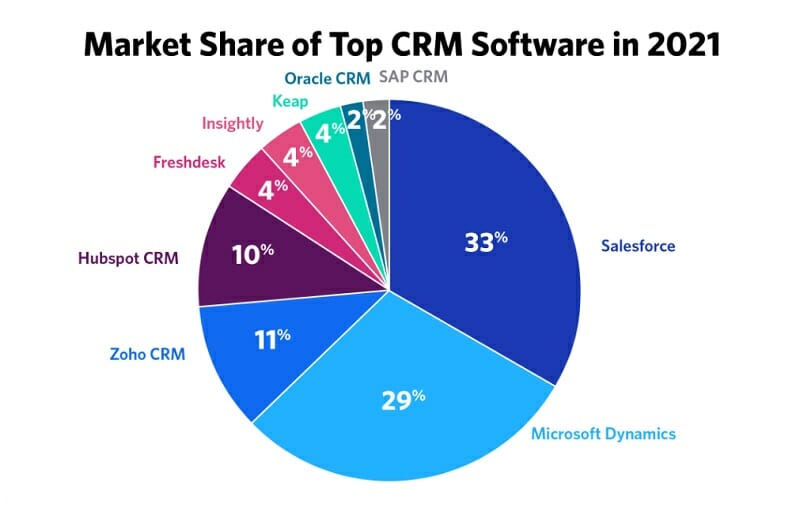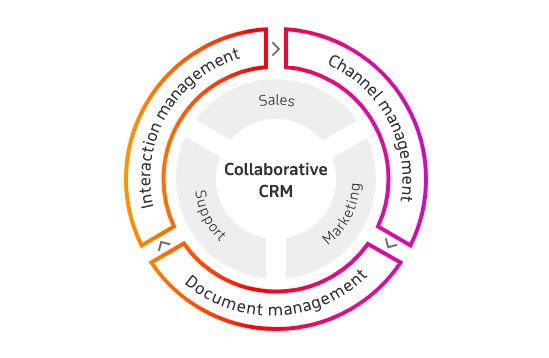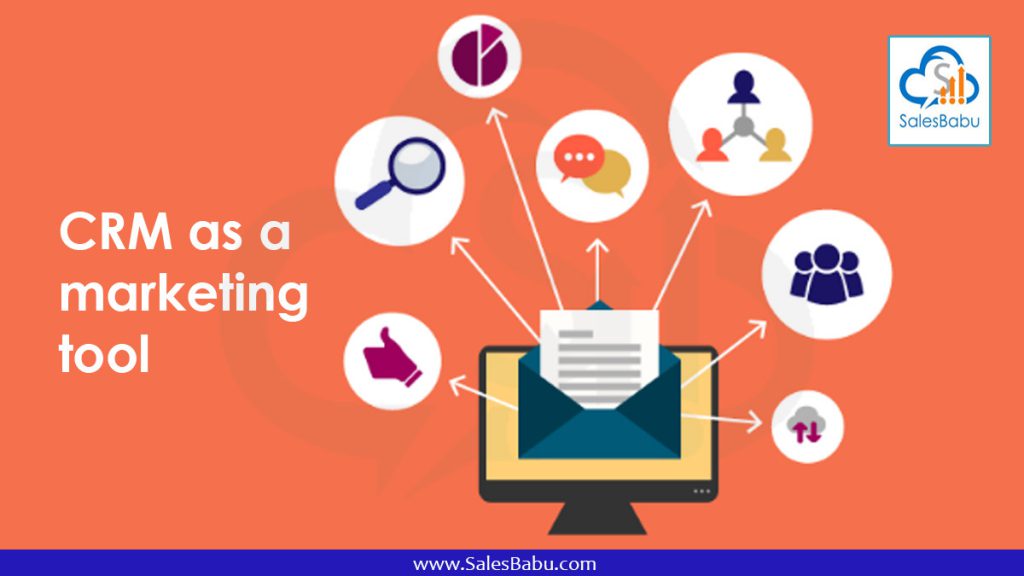
Unlocking the Power of CRM Marketing: Maximizing ROI and Driving Business Growth
In today’s fiercely competitive business landscape, simply having a great product or service isn’t enough. You need to connect with your customers, understand their needs, and build lasting relationships. That’s where Customer Relationship Management (CRM) marketing comes in. It’s not just about selling; it’s about creating value, fostering loyalty, and ultimately, driving a strong Return on Investment (ROI). This article will delve deep into the world of CRM marketing, exploring its core principles, practical applications, and the strategies you can implement to achieve significant ROI gains.
What is CRM Marketing?
At its heart, CRM marketing is a strategic approach to managing and analyzing customer interactions and data throughout the customer lifecycle. It uses technology and processes to understand customer behavior, personalize marketing efforts, and improve overall customer satisfaction. Think of it as the central nervous system of your marketing efforts, allowing you to make data-driven decisions and tailor your approach to each individual customer.
Unlike traditional marketing, which often takes a broad, one-size-fits-all approach, CRM marketing focuses on building individual customer profiles. This allows you to segment your audience, target specific groups with relevant messages, and deliver personalized experiences. The goal is to move beyond transactional relationships and create genuine connections that drive long-term loyalty and advocacy.
The Key Components of CRM Marketing
Effective CRM marketing relies on several key components working in harmony:
- CRM Software: This is the technological backbone of your CRM strategy. It’s a centralized platform for storing, managing, and analyzing customer data. Popular CRM software options include Salesforce, HubSpot, Zoho CRM, and Microsoft Dynamics 365. Choosing the right CRM software is crucial – it should align with your business needs, budget, and technical capabilities.
- Data Collection and Management: Gathering accurate and up-to-date customer data is essential. This includes contact information, purchase history, website activity, social media interactions, and any other relevant details. Data quality is paramount; inaccurate or incomplete data can lead to flawed insights and ineffective marketing campaigns.
- Segmentation: Dividing your customer base into distinct groups based on shared characteristics, such as demographics, behavior, or purchase history. This allows you to tailor your marketing messages and offers to resonate with each specific segment.
- Personalization: Delivering customized experiences that cater to individual customer preferences and needs. This can include personalized email campaigns, product recommendations, website content, and more. Personalization is key to building stronger customer relationships and driving engagement.
- Automation: Using technology to automate repetitive marketing tasks, such as email marketing, lead nurturing, and social media posting. Automation frees up your marketing team to focus on more strategic initiatives and improves efficiency.
- Analytics and Reporting: Tracking key metrics, such as conversion rates, customer lifetime value, and ROI, to measure the effectiveness of your CRM marketing efforts. Data analysis provides valuable insights that can be used to optimize campaigns, improve customer experiences, and drive better results.
The Benefits of CRM Marketing: Why It Matters
Investing in CRM marketing offers a multitude of benefits that can significantly impact your bottom line:
- Increased Sales and Revenue: By understanding customer needs and preferences, you can tailor your marketing efforts to drive sales and increase revenue. Personalized recommendations, targeted promotions, and improved customer service all contribute to higher conversion rates and bigger order values.
- Improved Customer Retention: CRM marketing helps you build stronger relationships with your customers, fostering loyalty and reducing churn. By providing excellent customer service, proactively addressing customer needs, and offering personalized experiences, you can keep your customers coming back for more.
- Enhanced Customer Satisfaction: CRM marketing allows you to deliver more relevant and personalized experiences, leading to higher customer satisfaction. When customers feel understood and valued, they are more likely to become loyal advocates for your brand.
- Reduced Marketing Costs: By targeting the right customers with the right messages, you can reduce wasted marketing spend and improve the efficiency of your campaigns. CRM allows you to focus your efforts on the most promising leads and customers, maximizing your ROI.
- Better Decision-Making: CRM systems provide valuable data and insights that can be used to make more informed marketing decisions. By analyzing customer behavior, tracking campaign performance, and measuring ROI, you can optimize your strategies and achieve better results.
- Improved Lead Generation: CRM systems can help you identify and nurture leads, guiding them through the sales funnel and converting them into paying customers. By tracking lead interactions and automating follow-up processes, you can improve your lead generation efficiency.
- Increased Efficiency and Productivity: Automating marketing tasks and streamlining workflows frees up your marketing team to focus on more strategic initiatives. CRM systems can help you manage your customer data, track your campaigns, and measure your results, all in one place.
Calculating CRM Marketing ROI: The Numbers Game
One of the most crucial aspects of CRM marketing is understanding its ROI. Measuring your ROI allows you to assess the effectiveness of your strategies, justify your investments, and identify areas for improvement. Here’s how to calculate CRM marketing ROI:
- Define Your Goals: Before you start, clearly define your CRM marketing goals. Are you trying to increase sales, improve customer retention, or generate more leads? Your goals will determine the metrics you need to track and measure.
- Track Your Costs: Identify all the costs associated with your CRM marketing efforts. This includes the cost of your CRM software, the salaries of your marketing team, the cost of any marketing campaigns, and any other related expenses.
- Track Your Revenue: Determine the revenue generated by your CRM marketing efforts. This can be tricky, but it’s essential to accurately measure your ROI. You can use various methods to track revenue, such as:
- Attributing sales to specific campaigns or marketing activities.
- Tracking the lifetime value of your customers.
- Measuring the increase in sales from existing customers.
- Calculate Your ROI: Use the following formula to calculate your ROI:
ROI = ((Revenue Generated – Total Costs) / Total Costs) * 100
For example, if your CRM marketing efforts generated $100,000 in revenue and cost $20,000, your ROI would be:
ROI = (($100,000 – $20,000) / $20,000) * 100 = 400%
This means that for every dollar you spent on CRM marketing, you generated $4 in return. - Analyze Your Results: Once you’ve calculated your ROI, analyze your results to identify areas for improvement. Are your campaigns performing well? Are there any areas where you can optimize your efforts? Are you achieving your goals? Use your data to make informed decisions and refine your CRM marketing strategies.
Strategies to Maximize CRM Marketing ROI
To achieve a high ROI from your CRM marketing efforts, consider implementing these strategies:
- Choose the Right CRM Software: Select a CRM platform that aligns with your business needs, budget, and technical capabilities. Research different options, compare features, and consider your long-term goals.
- Implement a Data-Driven Approach: Make data the foundation of your CRM marketing efforts. Collect accurate and up-to-date customer data, analyze your data to gain insights, and use your data to inform your marketing decisions.
- Segment Your Audience: Divide your customer base into distinct segments based on shared characteristics. This allows you to tailor your marketing messages and offers to resonate with each specific segment.
- Personalize Your Marketing Efforts: Deliver customized experiences that cater to individual customer preferences and needs. Personalization can include personalized email campaigns, product recommendations, website content, and more.
- Automate Repetitive Tasks: Use automation to streamline your marketing workflows and free up your marketing team to focus on more strategic initiatives. Automate tasks such as email marketing, lead nurturing, and social media posting.
- Focus on Customer Retention: Building strong customer relationships is crucial for long-term success. Implement strategies to improve customer satisfaction, reduce churn, and increase customer lifetime value.
- Measure and Track Your Results: Track key metrics, such as conversion rates, customer lifetime value, and ROI, to measure the effectiveness of your CRM marketing efforts. Use data analysis to optimize your campaigns and improve your results.
- Integrate CRM with Other Marketing Tools: Integrate your CRM system with other marketing tools, such as email marketing platforms, social media management tools, and website analytics platforms. This will allow you to create a more seamless and integrated marketing experience.
- Provide Excellent Customer Service: Exceptional customer service is essential for building strong customer relationships and driving loyalty. Train your customer service team to provide prompt, helpful, and personalized support.
- Continuously Optimize Your Strategies: CRM marketing is an ongoing process. Continuously monitor your results, analyze your data, and make adjustments to your strategies to maximize your ROI.
Real-World Examples of CRM Marketing Success
Let’s look at some real-world examples of how businesses have leveraged CRM marketing to achieve remarkable results:
- Amazon: Amazon is a master of CRM marketing. They use customer data to provide personalized product recommendations, target promotions, and deliver a seamless shopping experience. This has contributed significantly to their massive success.
- Netflix: Netflix uses CRM to understand viewer preferences and recommend relevant movies and TV shows. They also personalize their email campaigns and website content to keep viewers engaged.
- Starbucks: Starbucks uses its loyalty program and mobile app to collect customer data and personalize the customer experience. They offer personalized rewards, targeted promotions, and a seamless ordering process, leading to increased customer loyalty and sales.
- Sephora: Sephora’s Beauty Insider program allows them to collect customer data and personalize the shopping experience. They offer personalized product recommendations, targeted promotions, and exclusive events, driving customer engagement and sales.
Overcoming Challenges in CRM Marketing
While CRM marketing offers significant benefits, it’s not without its challenges. Here are some common hurdles and how to overcome them:
- Data Quality: Inaccurate or incomplete data can lead to flawed insights and ineffective marketing campaigns. To overcome this, invest in data cleansing and validation processes. Implement data quality checks, and regularly update your customer data.
- Data Privacy and Security: Protecting customer data is essential. Adhere to data privacy regulations, such as GDPR and CCPA. Implement robust security measures to protect your customer data from unauthorized access.
- Integration Issues: Integrating your CRM system with other marketing tools can be complex. Choose a CRM platform that integrates seamlessly with your existing tools. Consider using a marketing automation platform to streamline your workflows.
- User Adoption: Getting your team to adopt a new CRM system can be challenging. Provide adequate training and support. Communicate the benefits of the CRM system to your team, and encourage them to use it.
- Measurement and Reporting: Accurately measuring your CRM marketing ROI can be difficult. Define your goals, track key metrics, and use data analysis to gain insights. Invest in reporting tools to track your performance and measure your results.
The Future of CRM Marketing
The future of CRM marketing is exciting, with several emerging trends shaping the landscape:
- Artificial Intelligence (AI): AI is playing an increasingly important role in CRM marketing. AI-powered tools can automate tasks, personalize customer experiences, and provide valuable insights.
- Machine Learning (ML): ML algorithms can analyze vast amounts of customer data to identify patterns and predict customer behavior. This can be used to personalize marketing efforts and improve customer engagement.
- Omnichannel Marketing: Delivering a seamless customer experience across all channels, including email, social media, website, and in-store interactions.
- Customer Data Platforms (CDPs): CDPs are centralized platforms that collect and manage customer data from various sources. They provide a single view of the customer, enabling more personalized marketing efforts.
- Voice Search: Optimizing your content for voice search is becoming increasingly important. Customers are increasingly using voice assistants to search for products and services.
Conclusion: Embracing CRM Marketing for Sustainable Growth
CRM marketing is no longer a luxury; it’s a necessity for businesses that want to thrive in today’s competitive market. By implementing a well-defined CRM strategy, focusing on customer relationships, and leveraging the power of data, you can unlock significant ROI gains and drive sustainable business growth. Embrace the principles of CRM marketing, and you’ll be well-positioned to build stronger customer relationships, increase sales, and achieve long-term success. Remember, it’s not just about the technology; it’s about understanding your customers, providing value, and building genuine connections. Start today, and watch your business flourish.




